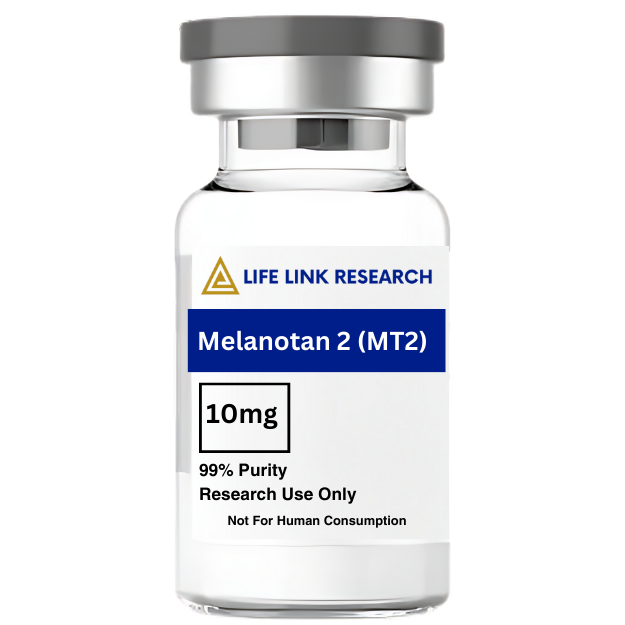Chonluten 20mg (10 vial kit)
$470.00
Out of stock
Buy 3 to Get 5% OFF
Buy 5 to Get 10% OFF
Buy 10 to Get 20% OFF
Product Usage: This PRODUCTS ARE INTENDED FOR RESEARCH CHEMICAL ONLY. This designation allows the use of research chemicals strictly for in vitro testing and laboratory experimentation only. All product information available on this website is for educational purposes only. Bodily introduction of any kind into humans or animals is strictly forbidden by law. This product should only be handled by licensed, qualified professionals. This product is not a drug, food, or cosmetic and may not be misbranded, misused, or mislabeled as a drug, food, or cosmetic.
Chonluten is a type of peptide bioregulator, which are short chains of amino acids designed to interact with specific aspects of cellular function. Specifically, Chonluten is targeted towards the cells of the respiratory system. Chonluten aims is to support the cells of the respiratory tract, possibly helping to maintain the health of the lungs and other parts of the respiratory system. This could be particularly beneficial in aging or in conditions where respiratory function is compromised.
Potential Benefits Under Research
-
Respiratory Health Support: Chonluten may help maintain and enhance the health of respiratory tissues, potentially useful in preventing or managing conditions that impair lung function.
-
Regeneration and Repair: It could aid in the regeneration of respiratory cells and the repair of damaged tissue, facilitating recovery from respiratory illnesses or injuries.
-
Aging Effects Mitigation: Chonluten might assist in slowing down or reversing age-related changes in the respiratory system, helping to maintain lung function as part of the aging process.
-
Enhanced Cellular Function: By potentially interacting with DNA or cell receptors, Chonluten could optimize cellular processes in respiratory tissues, improving overall cell health and functionality.
-
COVID-19 Effectiveness: There is ongoing investigation into whether Chonluten can play a role in enhancing respiratory cell resilience, potentially reducing the severity of COVID-19 symptoms or aiding in quicker recovery by supporting lung health.
-
Gastrointestinal (GI) Tract Benefits: Research might also explore the effects of Chonluten on the gastrointestinal tract, potentially supporting the health and function of GI tissues, which could lead to improved digestion and overall gut health.
Overview
Chonluten, also called tripeptide T-34. Research suggests that Chonluten regulates the expression of genes encoding antioxidant and anti-inflammatory pathways, particularly in the lungs and GI tract. This may explain why Chonluten is often used as a geroprotective agent (slowing or preventing the aging process) as well as an anti-inflammatory in the lungs where it seems to normalize mucosal function in the setting of conditions like COPD.
Structure
Molecular Formula: C11H11N30a
Molecular Weight: 319.27 g/mol
PubChem CID: 194641
CAS No: 75007-24-8
Alternative Names: T-34 tripeptide, EDG

Source: PubChem
Tripeptides in Bioregulation
A number of small di-, tri-, and tetrapeptides have been shown to increase life span by as much as 40% in animal studies. They appear to do this in a number of ways, such as suppressing the development of both spontaneous and induced tumors. This fact, combined with a reduction in the rate at which age-related biomarkers decline, has led scientists to postulate that a number of tripeptides may regulate gene expression as well as cellular processes like apoptosis.
Research indicates that short peptides can regulate all aspects of gene expression, including epigenetic DNA methylation. Modeling studies have shown that a single short peptide can regulate dozens of genes by penetrating both cytoplasmic (cell) and nuclear membranes to bind directly to DNA via a simple docking method at promoter, suppressor, and other DNA control regions.
Given the extensive role that Russia has played over the decades in the isolation and development of peptides and peptide bioregulators, it should come as no surprise that the leading authority on Chonluten is Vladimir Khavinson. Dr. Khavinson is the current director of the St. Petersburg Institute of Bioregulation and Gerontology and has served on several international committees focused on geriatrics and gerontology. His works has made it clear that Chonluten and other short peptides can bind directly to DNA to produce their effects. Dr. Khavinson indicates that Chonluten is just one of many short peptides that are ushering a new way of approaching both health and disease as we age.
Chonluten and the Lungs
Chonluten appears to have tissue-specific activity in the lungs, altering DNA expression in a way that normalizes mucosa in the bronchi. This inner lining of the bronchi is the barrier between the outside world that we inhale with every breath and the inner workings of our cardiovascular system and, ultimately, our entire body. It can be altered via different inflammatory conditions, such as asthma or COPD, in ways that lead to changes in mucus production, extracellular matrix structure, and more. Smoker’s cough, for instance, is an inflammatory condition that leads to chronic irritation of the mucosal lining and subsequent chronic cough, phlegm production, and more.
Chonluten’s effects appear to be mediated through several genes including c-Fos, heat shock protein gene HSP70, SOD, COX-2, TNF-alpha, and genes within the antioxidant system. Regulation of most of these genes has obvious anti-inflammatory effects. Of particular interest, however, is c-FOS. The c-FOS protein is a potent general regulator of cell proliferation, differentiation, and survival. It is activated in response to cellular damage and hypoxia. While its effects at a local level can be useful, such as the growth of new blood vessels and the proliferation of cells following injury, widespread expression can lead to thickened bronchial mucosa and even the development of cancer. The ability to regulate c-FOX activity offers the ability to strike one of the underlying pathophysiological changes seen in asthma and COPD.
Chonluten and COVID-19
A peptide with active anti-inflammatory effects is of obvious interest to scientists during the global COVID-19 pandemic. Research shows that Chonluten and its similar cousin Bronchogen are effective for the treatment of bronchopulmonary pathology. Chonluten appears to improve the effectiveness of standard therapy in the setting of chronic bronchitis with an asthmatic component and has stress-protective effects. Both of these features, combined with the fact that Chonluten improves physical performance and organism function state in the setting of low oxygen, might make this tripeptide a useful adjuvant in a multi-component cocktail for fighting COVID-19.
Chonluten and the GI Tract
The effects of chonluten in the GI tract are similar, if muted, to its effects in the lungs. Research suggests that it may be useful in reducing inflammation and vascular changes in the GI tract that result from inflammatory diseases like Crohn’s disease and ulcerative colitis. Research on this aspect of Chonluten is ongoing.
Chonluten Summary
Chonluten is a short peptide regulator of gene expression. It appears to be most active in lung tissue with secondary levels of activity in the GI tract. It regulates genes related to inflammation and antioxidant activity as well as genes involved in proliferation responses to inflammation. Regulation of pulmonary mucosal function by Chonluten may have important applications in chronic inflammatory diseases of the lung such as asthma.
Chonluten exhibits minimal side effects, low oral and excellent subcutaneous bioavailability in mice. Per kg dosage in mice does not scale to humans. Chonluten for sale at Life Link Research is limited to educational and scientific research only, not for human consumption. Only buy Chonluten if you are a licensed researcher.
Article Author
The above literature was researched, edited and organized by Dr. Logan, M.D. Dr. Logan holds a doctorate degree from Case Western Reserve University School of Medicine and a B.S. in molecular biology.
Scientific Journal Author
Vladimir Khavinson is a Professor, resident of the European region of the International Association of Gerontology and Geriatrics; Member of the Russian and Ukrainian Academies of Medical Sciences; Main gerontologist of the Health Committee of the Government of Saint Petersburg, Russia; Director of the Saint Petersburg Institute of Bioregulation and Gerontology; Vice president of Gerontological Society of the Russian Academy of Sciences; Head of the Chair of Gerontology and Geriatrics of the North-Western State Medical University, St-Petersburg; Colonel of medical service (USSR, Russia), retired. Vladimir Khavinson is known for the discovery, experimental and clinical studies of new classes of peptide bioregulators as well as for the development of bioregulating peptide therapy. He is engaged in studying of the role of peptides in regulation of the mechanisms of ageing. His main field of actions is design, pre-clinical and clinical studies of new peptide geroprotectors. A 40-yearlong investigation resulted in a multitude of methods of application of peptide bioregulators to slow down the process of aging and increase human life span. Six peptide-based pharmaceuticals and 64 peptide food supplements have been introduced into clinical practice by V. Khavinson. He is an author of 196 patents (Russian and international) as well as of 775 scientific publications. His major achievements are presented in two books: “Peptides and Ageing” (NEL, 2002) and “Gerontological aspects of genome peptide regulation” (Karger AG, 2005). Vladimir Khavinson introduced scientific specialty “Gerontology and Geriatrics” in the Russian Federation on the governmental level. Academic Council headed by V. Khavinson has oversighted over 200 Ph.D. and Doctorate theses from many different countries.
Prof. Vladimir Khavinson is being referenced as one of the leading scientists involved in the research and development of Chonluten. In no way is this doctor/scientist endorsing or advocating the purchase, sale, or use of this product for any reason. There is no affiliation or relationship, implied or otherwise, between Life Link Research and this doctor. The purpose of citing the doctor is to acknowledge, recognize, and credit the exhaustive research and development efforts conducted by the scientists studying this peptide. Prof. Vladimir Khavinson is listed in [1] [2] [4] [5] [6] and [7] under the referenced citations.
Referenced Citations
1. V. K. Khavinson, N. S. Lin’kova, A. V. Dudkov, V. 0. Polyakova, and I. M. Kvetnoi,
“Peptidergic regulation of expression of genes encoding antioxidant and anti-inflammatory proteins,” Bull. Ex.. Biol. Med., vol. 152, no. pp. 615-618, Mar. 2012, doi: 10.1007 ls10517-012-1590-2.
4. V. K. Khavinson, I. G. Popovich, N. S. Linkova, E. S. Mironova, and A. R. llina,
“Peptide Regulation of Gene Expression: A Systematic Review,” Molecules, vol. 26, no. 22, p. 7053, Nov. 2021, doi: 10.3390lmolecules26227053.
5. V. K. Khavinson, N. S. Lin’kova, and S. I. TarnovskaY.a, “Short Peptides Regulate Gene Expression,” Bull. Exp.- Biol. Med., vol. 162, no. 2, pp. 288-292, Dec. 2016, doi:
10.1007 ls10517-016-3596-7.
| Weight | 0.5 kg |
|---|---|
| Title | Default Title |
ALL ARTICLES AND PRODUCT INFORMATION PROVIDED ON THIS WEBSITE ARE FOR INFORMATIONAL AND EDUCATIONAL PURPOSES ONLY.
The products offered on this website are furnished for in-vitro studies only. In-vitro studies {Latin: in glass) are performed outside of the body. These products are not medicines or drugs and have not been approved by the FDA to prevent, treat or cure any medical condition, ailment or disease. Bodily introduction of any kind into humans or animals is strictly forbidden by law.




